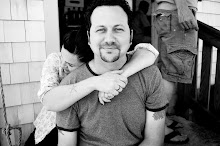The first few paragraphs are on the Believer's website and pasted below but, consistent with the Believer's belief in print, you will have to buy the magazine to see the rest.
Burden of Proof
A Tale of Innocence and Accusation at Summer Camp
by Billy Sothern
I decided to go to Camp Eagle Hill for one more year. I was fourteen and had been going there for five years. I had been a little boy in the lower camp and then, nearly half a life later, I was one of the older kids, hanging around the Lake Side bunk house with David and Ian before heading out to play basketball or tennis or blow off sports altogether and hit frogs with our tennis rackets against Big Red, the gymnasium where we played deck hockey and had “Sing,” the final event of Color War.
I was too old for camp, really. I had become leery of Billy Joel, thought “Sing” was corny, and was developing a strong adolescent impulse against having things required of me. But camp was still a salve, a place where nothing went wrong beyond the occasional broken bone, and where I, like it or not, belonged. The camp plaques in the dining hall proved it. There I was, Billy “The Gangster of Love” Sothern, among the campers in the “Fly Skimmers,” in Hill Top 6, summer of 1987. There again, Billy “Southern Comfort” Sothern, in Club Clueless in Hill Top 8, the following summer, and so on. People were not suspicious of me here, unlike in my new hometown, where an eighth-grade curiosity about marijuana and huffing Scotchgard had gotten me a reputation for being a “druggie.”
For this reason, when our counselor’s money went missing—a couple hundred dollars in tips from a recent parents’ weekend—no one suspected me, though we were all certain that one of the boys in the bunk had taken the money. Our counselor, Brian, devised the kind of justice that makes sense only at camp, and demanded that we all gather a hundred yards away from the cabin. He explained that he did not want to know who took the money. He only wanted it returned. He said that each of us would go back to the cabin, enter it, spend a minute inside, and return, and he asked that the person who took the money use this opportunity to return it to a drawer in his music-cassette storage box. We all agreed.
To read the rest of this piece, please purchase this issue of the Believer online or at your local bookseller.

No comments:
Post a Comment